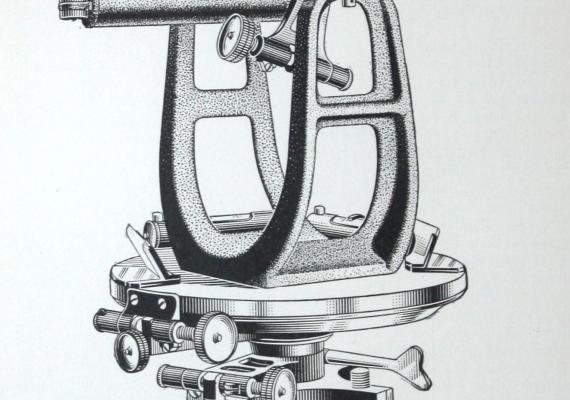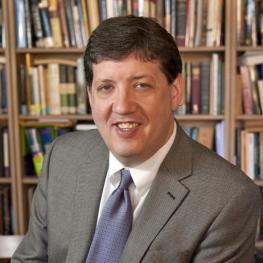Objectivity: A Critical Scholarly Value under Fire

Several recent New York Times articles and op-eds raise disturbing questions about the future of a value at the heart of the Katz Center—objectivity.
One article, “Researchers or Corporate Allies? Think Tanks Blur the Line” is an exposé of prominent think tanks like the Brookings Institute, which rely on donations from corporations to sustain a good percentage of their annual budget. Think tanks cast themselves as “universities without students.” Their value to society depends on the independent research they produce. Think tank executives deny any suggestion that they are the tools of the corporate donors who support them, but the article lays out evidence that the intellectual independence of some think tanks has been compromised by the role they have developed as unofficial lobby organizations. As one executive director notes, “people think of think tanks as do-gooders, uncompromised and not bought like others. . .” but, because of corporate donations, “the danger is we in the think tank world are being corrupted in the same way as the political world. And all of us should be worried about it.”
Another article, “The Challenge Trump Poses to Objectivity,” addresses the objectivity of contemporary journalism. If journalists believe a leader to be a threat to the nation’s well-being, can they go about their job as they have in the past? Can they be objective in their analysis? Should they be objective? Many believe that to stick to how journalists have covered elections in the past would be immoral during this unprecedented and unsettling election season, but if journalists shift from reporting the facts to being critics, is there a risk that their credibility will be compromised in a way that is ultimately harmful to society?
Yet another piece raises a different problem: sometimes the pursuit of truth can be compromised by unwillingness to compromise. In “Can We Still Trust Wikileaks?” Alex Gibney argues that Julian Assange, editor-in-chief of Wikileaks, has been afflicted by “noble cause corruption,” a belief in a noble end that has led him astray. Assange’s goal is to hold governments and political organizations accountable by casting light on their inner-workings, as he recently did with the Democratic National Committee. He is so committed to transparency that he refuses to alter his sources in any way, even if he risks of publishing information that will be harmful to innocent people. But the writer of the essay questions Assange’s objectivity, criticizing him for using transparency to pursue his own personal aims. Is there a possibility that the journalistic search for truth is being compromised not only by financial pressures but also by good intentions?
Although the Katz Center is neither a think tank nor a journalistic organization, it cannot ignore the imperiled state of objectivity because it, too, is an institution dedicated to the search for the truth. It pursues this quest at a time when many individual scholars question the possibility of intellectual objectivity or political neutrality. For a fascinating and disturbing account of how the ideal of scholarly objectivity has changed and been challenged over the decades, see Peter Novick’s That Noble Dream.) It might seem naïve to profess a commitment to objectivity, but as an institution, the Katz Center might well have an obligation to defend it.
Consider all the forces arrayed against independent and objective scholarship. In 2009, an initiative called the Scholar Rescue Fund reported receiving applications for help from persecuted academics in 101 countries—and this was before recent crises jeopardized scholarship in places like Turkey which has closed universities, fired thousands of deans, and curtailed the travel of scholars in response to an attempted coup. Even in a country like the U.S. where academics do not face persecution, there are corrosive pressures on scholarly objectivity as researchers find themselves relying more and more on private sources of research funding. In a world that poses so many risks to independent scholarship, it is crucial to have institutions committed to creating an environment where scholars can pursue their work as independently as possible, without outside interference or influence.
The recent Times pieces illustrate how difficult it is to sustain objectivity in the contemporary world. Often dependent on external funding to accomplish their important work, institutions sometimes purchase organizational independence at the expense of intellectual independence. Truth-seekers can be led astray by ambition but also by noble intentions—by a need to address real-world problems or to speak truth to power. How vulnerable is a research institute like the Katz Center to the kinds of pressures and temptations that are changing the nature of other kinds of institutions?
The Center benefits from having faculty advisory boards and a board of overseers who understand and support its mission, and from being part of a university with rules and institutional practices that help to protect our mission. We also never forget that we are accountable to fellow scholars who expect the Center to maintain its commitment to intellectual excellence. But we cannot be complacent. As many practitioners of Jewish studies know well, it is difficult for scholars in this field to completely detach themselves from politics and economics. Indeed, many scholars feel it is wrong to stay neutral or to pretend to be objective in the face of the challenges posed by the Israeli-Palestinian conflict or the financial pressures that beset the modern university. The forces that are reshaping think tanks and journalism are at work in academia as well, and we should not underestimate their power or their subtlety.
My point is that the question of scholarly objectivity has be to thought of in institutional and social terms and not just as a question of epistemology or method. It would be hard to find a scholar in the humanities today who believes in the possibility of completely neutral, unbiased, and detached scholarship, and I am not an exception. But even so, there is something hard-won and very important that will be lost if the field of Jewish Studies collectively abandons objectivity as an operational principle—just as there will be great cost to society if it gives up on the goal of objective journalism or fact-driven accounting. Objectivity is not just an intellectual ideal; it is an ethical and political ideal as well, and in an age when scholars face all kinds of threats to their credibility, their integrity, their independence, and their well-being, it is one that, in my view, a research institute like the Katz Center has a solemn responsibility to honor and sustain.
